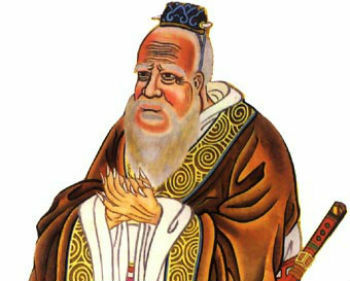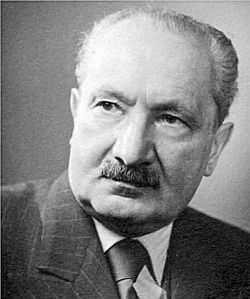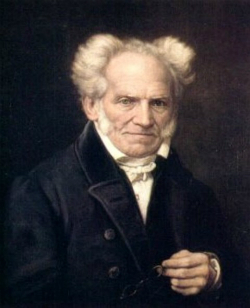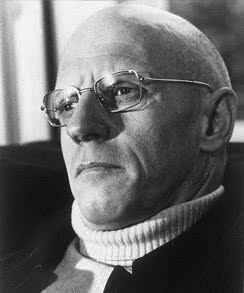K'ung Ch'iu, K'ung Chung-ni or Confucius for Westerners he was a Chinese teacher born, probably, in 552 BC. Ç.
His philosophy, based on human kindness and benevolence, influenced Chinese and Asian culture.
Biography

He was born in 551 BC. C and lost his father at the age of three. His family was noble but impoverished.
From an early age he worked to help support the household and is employed as a pastor, bookkeeper, etc. As a teenager he decides to further his studies and become a sage.
Confucius made no distinction between his disciples and proposed to teach everyone, something unprecedented in Chinese society at the time.
He considered that different people need different teaching methods and works, but he did not reject a disciple because of his social condition.
As was customary, the disciples accompanied the master on his wanderings.
Therefore, they listened and questioned the master on various topics. In these dialogues, learning took place. The goal of the followers was to acquire wisdom to employ themselves as officials or teachers.
Although many consider Confucianism as religion, in fact, we cannot consider it as such. After all, Confucius did not preach the worship of a god or dogmatically institute a belief. His thought was meant to serve as guidance for a better life.
He dies at the age of 72 (or 73) in his hometown, saddened that no prince is interested in his teachings.
Read more about ancient china.
Historical context
As of century VII a. C, there are wars and deep social changes that collapse the feudal system. Many officials roamed unoccupied Chinese territory and offered their knowledge to those who wished to acquire wisdom.
In this way, employees are transformed into private teachers and at this time the two currents of Chinese thought emerge: the Taoism it's the Confucianism.
Confucius also goes from principality to principality offering his services and is considered the first private tutor in China.
For Confucius the only inequality between men should be between those who wanted to acquire knowledge or not.
Philosophy
Confucius' philosophy is based on human goodness and can be summed up in the famous phrase "don't do to others what you wouldn't want them to do to you." Below, check out a summary of Confucius' ideas on some topics:
Human nature
According to Confucius, the human being is by nature good.
The Chinese thinker breaks with the aristocratic conception of superior and inferior men. It gives a moral sense and regardless of their birth condition a person should seek to improve themselves morally.
What virtues should human beings cultivate? Wisdom, sense of responsibility, benevolence (sense of humanity) and the ability to put yourself in the other's shoes.
Why should we care about others? It's our duty. The truly moral man does not ask this question. The second answer would be the social pact: I behave well and I hope that others behave well with me so that we can live in society.
Government
According to Confucius, good government was based on concern for the well-being, on the happiness of individuals, on the good example of the use of power and on trust in human goodness.
Confucius also warned that rulers should be aware of what we call today the “common good”. Likewise, the people would have the right to rebel if they saw that their interests were not well defended.
Religion
Confucianism breaks with the traditional religion of the time. In China, people believed in an afterlife where the social hierarchy on earth would be repeated in the other world. Thus, a noble would continue to be a noble and a servant would continue to serve that same noble.
Confucius calls the attention of the disciples that they should not be concerned about the world after death, because it was not possible to know it in this life. So it was better to cultivate virtues that would help us to be better people and still help others to be happy.
At this point, Confucius' ideas resemble those of agnostics.
Construction
Despite being a renowned philosopher, it is unlikely that Confucius wrote anything in his lifetime. His books are probably collections collected by his disciples. In your aphorisms you have to be a very active reader, because those sentences are said to provoke and let the reader draw his own conclusions.
His ideas are gathered in the Four Books:
- Lun Yu - Dialogues, Analects
- Dà Xué - Great Teaching
- Zhong Young - The Doctrine of the Middle.
- Mencius - Meng Zi
Sentences
- When you see a good man, try to imitate him; when you see a bad man, examine yourself.
- If you want to predict the future, study the past.
- The superior man blames himself; the common man to others.
- Silence is a friend that never betrays.
- Why worry about death? Life has so many problems that we have to solve first.
- It is not the bad herbs that drown the good seed, but the neglect of the farmer.



